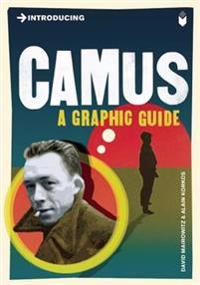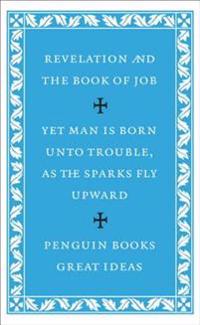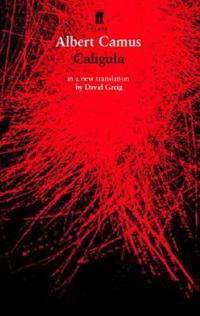The Cigar That Fell in Love With a Pipe (Inbunden)
avDavid Camus, Nick (ILT) Abadzis, David Camus
ISBN: 9781906838485 - UTGIVEN: 2014-04On the eve of the release of his latest movie, The Lady From Shanghai, Orson Welles receives a gift: an admirer has sent him a box of cigars. Rich and full-bodied, they are the finest he's ever tasted. But then, these are no ordinary cigars: they've been assembled by the most famous cigar roller in [...]
Introducing Camus (Pocket)
avDavid Zane Mairowitz, Alan Korkos, David Zane Mairowitz
ISBN: 9781848313453 - UTGIVEN: 201204"Introducing Camus" portrays a man who was an intellectual in the tradition of the great French humanists, a Resistance fighter during World War II, and also a great sensualist for whom sun, sea, sex, football, and theater were the answer to life's absurdity.[...]
Albert Camus the Algerian (Häftad)
avDavid Carroll
ISBN: 9780231140874 - UTGIVEN: 2008-10In these original readings of Albert Camus' novels, short stories, and political essays, David Carroll concentrates on Camus' conflicted relationship with his Algerian background and finds important critical insights into questions of justice, the effects of colonial oppression, and the deadly cycle[...]
Camus (Häftad)
avDavid Sherman
ISBN: 9781405159319 - UTGIVEN: 200810Reflecting the profound influence he continues to exert on popular consciousness, Camus examines the complete body of works of French author and philosopher Albert Camus, providing a comprehensive analysis of Camus' most important works-most notably The Myth of Sisyphus, The Stranger, The Fall, The [...]
Introducing Camus (Häftad)
avDavid Zane Mairowitz
ISBN: 9781840468472 - UTGIVEN: 2007-11Albert Camus, winner of the Nobel Prize for Literature in 1957, always refused the existentialist label with which he is usually associated. For Camus, the world was 'absurd', without purpose, leading only unto death, yet all the more invigorating precisely because of this. Long associated with Left[...]
The Revelation of St John the Divine and the Book of Job (Pocket)
avVoltaire, Albert Camus, David Hume
ISBN: 9780141023854 - UTGIVEN: 200508Throughout history, some books have changed the world. They have transformed the way we see ourselves - and each other. They have inspired debate, dissent, war and revolution. They have enlightened, outraged, provoked and comforted. They have enriched lives - and destroyed them. Now Penguin brings y[...]










